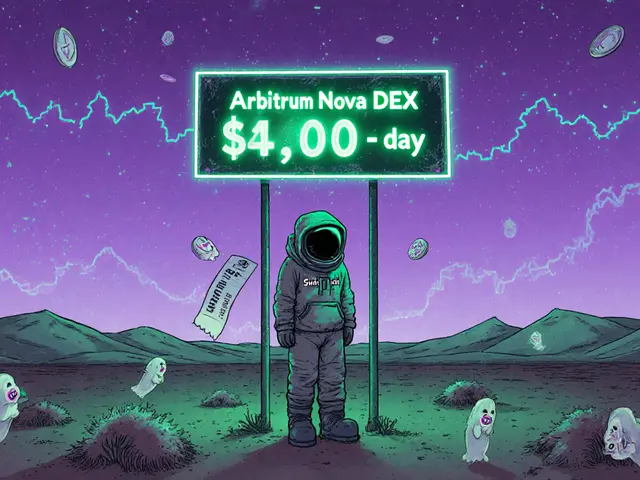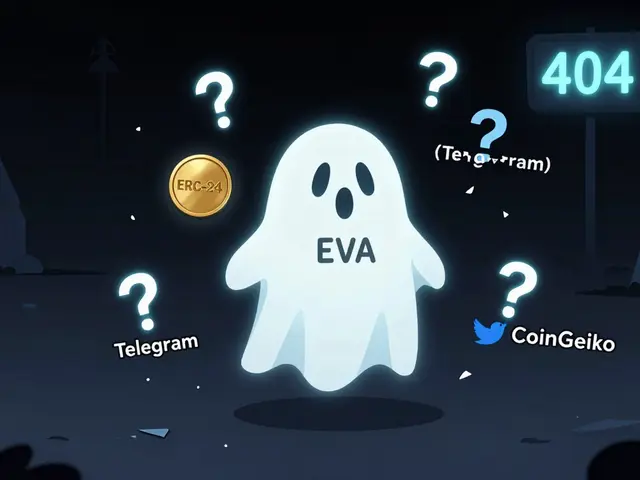For years, the UK waited. Investors, startups, and banks all asked: When will the government finally set clear rules for crypto? On April 29, 2025, HM Treasury answered. The draft Financial Services and Markets Act 2000 (Regulated Activities and Miscellaneous Provisions) (Cryptoassets) Order 2025 wasn’t just another consultation paper-it was the first real blueprint for how crypto will work under UK law. This isn’t about banning crypto. It’s about bringing it inside the same legal cage as banks, brokers, and payment processors. And it’s already changing how businesses operate.
What’s Actually Regulated Now?
The new rules don’t cover every crypto activity. They focus on five specific areas where consumer risk is highest and market integrity is most at stake:
- Running a crypto trading exchange
- Issuing stablecoins
- Buying or selling qualifying cryptoassets
- Holding cryptoassets for clients (custody)
- Arranging crypto trades for others
If your business does any of these five things with UK customers, you now need FCA authorization. No exceptions. No loopholes. This means firms like Binance, Kraken, or Coinbase can’t just operate in the UK anymore without jumping through the same hoops as a UK bank. The FCA will check their financial health, anti-fraud systems, customer service policies, and cybersecurity. Same standards. Same paperwork. Same penalties for failure.
Stablecoins Are the Big Target
Stablecoins-crypto coins pegged to the pound, dollar, or euro-are the centerpiece of this new regime. The UK is one of the first major economies to regulate stablecoin issuers directly. If you’re based in the UK and you issue a stablecoin, you’re now a regulated financial institution. You need capital reserves, audit trails, redemption guarantees, and a clear plan if things go wrong.
But here’s the twist: the rules only apply to UK-based issuers. A stablecoin issued in the US or Singapore can still be traded by UK users. HM Treasury didn’t try to control every stablecoin on the planet. Instead, they focused on where the risk starts: the issuer. If a UK person buys USDC or USDT, they’re still protected by existing consumer laws and the FCA’s enforcement powers-but the issuer itself isn’t under UK supervision. This gives UK firms a chance to compete globally while keeping British consumers safe.
DeFi Is Still Mostly Off-Limits
One of the smartest moves in this whole plan is what’s not regulated. Truly decentralized finance-like Uniswap, Aave, or Compound-won’t be forced to get FCA approval. Why? Because there’s no company, no CEO, no legal entity to hold accountable. The FCA will look for a "controlling party." If a group of developers or a foundation has real power over the protocol, they might be caught. But if it’s just code running on a blockchain with no central team? That’s out of scope.
This isn’t a loophole. It’s a realistic acknowledgment that some parts of crypto can’t be regulated the same way as a bank. Trying to force compliance on decentralized networks would just push them offshore or make them harder to use. The UK is betting that smart regulation on the entry points-exchanges, custodians, issuers-is enough to protect users without killing innovation.

How This Compares to MiCA and Other Regions
The UK didn’t start from scratch. They looked at the EU’s MiCA regulation and took the best parts. Both systems regulate the same five activities. Both require FCA or ESMA-style authorizations. Both treat stablecoins as financial instruments. But there are key differences.
First, MiCA applies to all stablecoin issuers globally if they want to sell in the EU. The UK only regulates UK issuers. Second, MiCA has strict rules on algorithmic stablecoins and reserve disclosures. The UK’s version is simpler-focus on capital, transparency, and redemption. Third, the UK didn’t create a whole new regulator. It just added crypto to the FCA’s existing powers. That means firms already licensed by the FCA for other services can adapt faster.
Compared to the US, where regulation is a patchwork of state and federal rules, the UK’s approach is cleaner. Compared to Singapore or Switzerland, which are more permissive, the UK is stricter on consumer protection. It’s not the most lenient. It’s not the most restrictive. It’s a middle path designed for a financial hub.
What Businesses Must Do Now
If you’re running a crypto business in the UK, here’s what you need to do by the end of 2025:
- Figure out if your activity falls under the five regulated categories.
- Check if you’re a UK issuer of a stablecoin-even if you’re small.
- Start preparing your FCA application: financial statements, compliance manuals, KYC/AML systems, and risk controls.
- Don’t assume your existing crypto license from another country works here. The FCA doesn’t recognize foreign approvals.
- Watch for the next wave: anti-money laundering updates and market abuse rules coming later in 2025.
Traditional banks and asset managers have an advantage. They already have compliance teams, audit trails, and capital buffers. Crypto-native startups? They’re starting from zero. Many will need to hire lawyers, auditors, and tech security experts just to apply. That’s expensive. Some small firms may just exit the UK market.

What’s Coming Next?
The April 2025 draft isn’t the final word. HM Treasury published another set of proposed changes on September 2, 2025, targeting money laundering rules for crypto firms. These updates will tighten customer checks, ban pooled client accounts (a common crypto loophole), and require better reporting to financial intelligence units.
Two more big pieces are still missing:
- Market abuse rules: insider trading, price manipulation, and spoofing in crypto markets.
- Admissions and disclosures: what crypto firms must tell investors before they buy.
These are expected by early 2026. The FCA also plans to release detailed rulebooks and guidance documents by mid-year. Until then, firms are operating in a gray zone-officially unlicensed but expected to behave as if they’re already regulated.
Why This Matters for Everyone
This isn’t just for crypto companies. It’s for anyone who uses crypto.
For investors: you’ll have more protection. If a UK-based exchange goes bust, you might get compensation from the Financial Services Compensation Scheme (FSCS)-just like with a bank. If you hold a UK-issued stablecoin, you’ll know it’s backed by real assets.
For businesses: the UK is signaling it wants to be a global crypto hub. Clear rules attract capital. Clear rules attract talent. Clear rules attract innovation. London could become the place where compliant crypto firms choose to base themselves-not because it’s cheap, but because it’s predictable.
For regulators: this is a test. Can you protect people without killing innovation? Can you regulate without overcomplicating? The UK’s approach tries to answer both. If it works, other countries-from Canada to Australia to Japan-will copy it. If it fails, crypto will keep moving to places with fewer rules.
Right now, the UK is walking a tightrope. But for the first time, there’s a rope. And it’s not going anywhere.
Are all cryptocurrencies regulated under the new HM Treasury rules?
No. Only five specific activities are regulated: running a trading exchange, issuing stablecoins, dealing in qualifying cryptoassets, custody services, and arranging trades. Truly decentralized protocols like Uniswap or Aave aren’t covered unless a central team controls them. Bitcoin and Ethereum as assets aren’t regulated directly-only how they’re traded or held.
Do I need FCA authorization if I’m a UK resident buying crypto for myself?
No. The rules apply to businesses offering services, not individual investors. If you buy Bitcoin on a regulated exchange or hold it in your own wallet, you’re not required to get licensed. But you should only use platforms that are FCA-authorized to reduce your risk.
What happens if a crypto firm operates in the UK without FCA approval?
They’re breaking the law. The FCA can block their website, freeze their bank accounts, fine them, or even pursue criminal charges. Non-compliant firms will be publicly listed as unauthorized. UK banks are also required to cut off services to unlicensed crypto businesses. Operating without approval is no longer a gray area-it’s a high-risk gamble.
Are stablecoins from the US or EU legal to use in the UK?
Yes. The UK only regulates stablecoin issuers based in the UK. US-issued stablecoins like USDC or USDT can still be bought and sold by UK residents through exchanges. However, UK exchanges offering these must be FCA-authorized, and they must clearly disclose the issuer’s location and risks.
When will the rules become official?
The draft legislation was open for public comment until May 23, 2025. After that, it went through Parliament for final approval. As of November 2025, the rules are expected to be fully in force by early 2026. Firms have until then to apply for authorization. The FCA has already started reviewing applications.
Will this make crypto more expensive to use in the UK?
It already has. Authorized firms face higher compliance costs-audits, legal fees, security systems-which often get passed to users through higher trading fees or lower yields. But you’re also getting more protection. If an FCA-licensed exchange fails, you might recover your funds through the FSCS. For many, that trade-off is worth it.






Gavin Jones
Finally some clarity! Been waiting years for this. The UK’s not banning crypto, it’s bringing it into the fold like a responsible adult. No more wild west, no more shady exchanges pretending they’re legit. FCA authorization? Good. If you’re serious about this space, you’ll jump through the hoops. The rest? Let ‘em vanish into the ether.